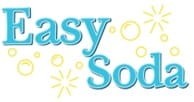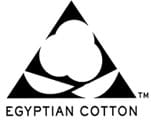The issue
In the UK and EU, trade marks that are of "such a nature as to deceive the public" will be refused registration (and can be invalidated once registered). Deception can be as to matters such as "the nature, quality or geographical origin of the goods or service".
The provision aims to mitigate the risk of the public believing that the goods or services for which the trade mark in question is used possess certain characteristics when they do not.
But what counts as deception and how high is the threshold?
What is deception?
The threshold for a trade mark to be considered deceptive by the UK IP Office (UKIPO) and EU IP Office (EUIPO) is relatively high.
To be considered deceptive, two cumulative criteria must be met:
- The relevant public must recognise the mark as conveying a specific, clear and unambiguous message about the nature, quality, geographical origin or other characteristic of the goods and services.
What factors will be considered?
In assessing these criteria, the following factors will be taken into account:
- The average consumer is considered to be reasonably attentive and not particularly vulnerable to deception.
- An intention to deceive will not be assumed – rather, good faith on the part of the applicant is assumed. Non-deceptive use will be assumed where conceivable and possible.
- No investigation will be conducted as to how an applicant is or intends to use the mark in question. Notional and fair use across the specification will be assumed.
When is deception usually found?
Deception is usually found where a mark suggests that the goods or services in question possess certain characteristics, which they do not. This could arise, for example, where a mark contains the words ANIMAL FREE but the specification of goods/services includes meat. It could also apply where a mark contains the word CHARTERED but the applicant does not have chartered status or the mark contains the word TITANIUM but covers building products other than those made of titanium.
What is not deception?
However, the mark APPLE would not be deemed deceptive for computers since the average consumer would not expect computers to contain apples. Likewise, an application covering a broad term would usually be accepted if its use would not be deceptive for some items within that broad term. For example, an application for the mark Hartley’s Strawberry Jam for "jams and preserves" would be accepted on the basis that the mark would only be expected to be used on strawberry jam (and any other use would likely fall foul of Trading Standards / equivalent legislation).
At what date is deceptiveness assessed?
The assessment of whether a mark is deceptive is made at the filing or priority date of the application, so it cannot be remedied later. It is therefore important to consider the issue at the time of filing the trade mark application (and drafting the specification of goods/services).
Some examples of deceptive marks
Some recent examples of trade marks that have been refused for deceptiveness help to illustrate the provisions in practice:


-
The EUIPO refused an EUTM application for the NATUR.VINYL stylised word mark below for descriptiveness and deceptiveness for "floor boards of wood" and "metal building materials" among other goods. A consumer could be deceived into believing that they are purchasing goods made from pure and/or high-quality vinyl rather than wood or other flooring. They might also purchase the goods thinking that they have similar characteristics to vinyl (ie elasticity and lightness of weight), when they do not.

- The UKIPO recently issued a provisional refusal against a UK designation of an International Registration for the below logo incorporating the words EGYPTIAN COTTON for "raw cotton". The rationale was that the average consumer would pay more for Egyptian cotton and would be deceived as to the quality of the goods if it was any other kind of raw cotton. We wait to see whether the refusal is upheld and whether the applicant amends its specification.

Deception and green trade marks
While there are various ways that trade marks can fall foul of these provisions, there are cases which are not as clear cut. In recent years, more businesses have applied for "green" trade marks, that expressly or impliedly contain a claim that the goods/services in question have a positive environmental impact.
One might expect a proportion of such marks to fall foul of the deceptiveness provisions. However, to date, no such applications appear to have been refused for deceptiveness by the UKIPO or EUIPO. (The only possible exception is the refusal of an EUTM application for PAPER 2 PAPER RECYCLABLE (logo) for plastic cups and other items , where the EUIPO discussed the importance of getting environmental claims right.)
Therefore, a trade mark application containing words such as ELECTRIC HEATERS SAVE YOU MONEY (for electric heaters) or THE GREENEST ENERGY COMPANY (for energy services) would not seem to fall foul of the deceptiveness provisions under current UKIPO and EUIPO practice. It seems that the UKIPO and EUIPO would assume non-deceptive use of these marks.
What is less clear is whether a trade mark application containing words such as ZERO EMISSIONS FLIGHTS (for air travel) would be objected to for deceptiveness, it being highly improbable that such flights are currently possible. Under current practice, it seems unlikely (although not impossible) that the UKIPO and EUIPO would raise a deceptiveness objection here. More likely, they would consider the "policing" of such claims to be within the remit of organisations such as the ASA in the UK. However, this is largely untested and whether practice will evolve, remains to be seen. For more on this, see our article on green brands here.
How can deceptiveness objections be overcome?
Many – but not all - deceptiveness objections can be overcome by amending the specification of goods/service to exclude certain items.
However, care should be taken to consider possible deceptiveness objections before filing an application. The nature of the mark should be carefully considered by reference to the list of goods and services.









